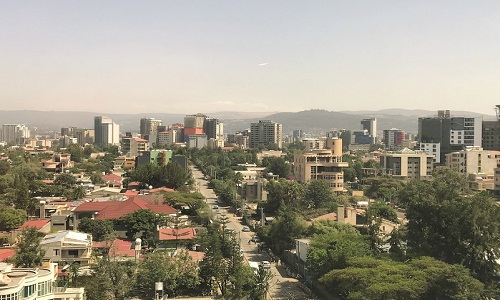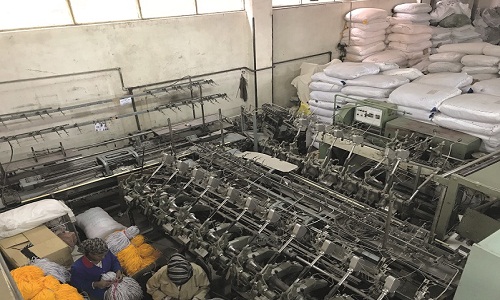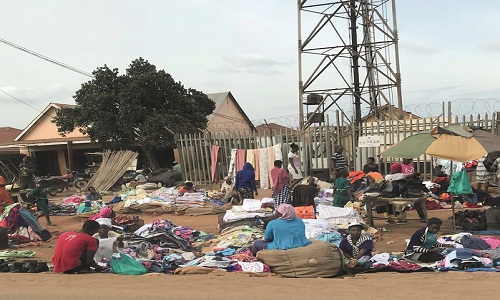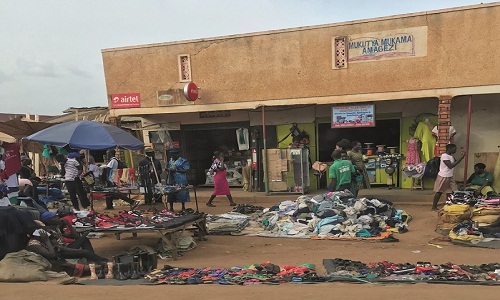Africa has always played a significant role for Stoll, a leading manufacturer of flat knitting machines based in Reutlingen, with the oldest agency contract, in South Africa, dating back to more than 35 years. Especially in South Africa and Kenya, Stoll machines, built in the 1950s and 60s, are still running. The company is now sharing its success story and the future outlook on the growth opportunities in the region.
This is the last part of the story, exploring the company’s success in Ethiopia, Uganda, Ghana and Zimbabwe.
Ethiopia
Garment and leather shoe manufacturing, along with cultivation of agricultural products, are the main industries in Ethiopia, mainly driven by foreign investment. Local companies are not yet in the position to play a bigger role in this game. Due to the lack of foreign currencies, Ethiopian companies are outplaced when it comes to economic growth and wealth as they are simply not able to invest.

“Even though the textiles manufacturing sector has been named a number one priority for the country, there are still many obstacles to overcome. Qualified and well-trained people are not yet available to the extent as required. Foreign investors have to make use of expensive expats for quite a long period to get their business running and achieve the economic targets - this is where Stoll comes into the picture,” the company reports.
Stoll has been the first manufacturer of electronic flat knitting machines to supply two state-of-the-art CMS machines, along with two design software M1plus to the Textile Institute of Bahir Dar University. Today, Bahir Dar University is giving education to roughly 3,000 students. It is planned to double the number of students within the next five years. Bahir Dar is currently constructing a Mega Textile City within the University campus. The aim is to educate and produce simultaneously. Bahir Dar wants to become the biggest University in Africa for applied textile sciences, as well as one of the biggest textiles producers. Buildings are nearly finished and waiting to be equipped.
“Stoll will have a vital part in the flat knitting sector,” the manufacturer says. “This way, we can assist in further education/training as well as in production of flat knitted items. The Ethiopian government is attracting foreign investors with an exemption of income/profit tax, duty free import/export possibilities and quota free export to the US and Europe (for textiles). In addition, Ethiopia is selling energy at the lowest rate in the area and is building huge industrial estates country wide.

“The system of incentives will definitely attract all kinds of foreign manufacturing companies, at least for the period of the incentives, which is between 7-10 years respectively. The government is aware that these companies will move, once the incentives are not available anymore, but hopes, that until then, the local industries have grown in such a way that substitutes the foreign companies.”
“But, to achieve that, money has to be made available. There is still a long way to go, but this is possible to achieve with the new Prime Minister. Stoll is represented locally and is consistently monitoring the situation.”
Uganda
“Since we are active in Kenya, we also know that flat knitting is done in Uganda. The yarn trade between Kenya and Uganda made us discover potential customers. Like in all East-African countries, school uniforms are a must for children and students. As such, flat knitted sweaters and cardigans are part of the equipment. But, so far, everything is knitted on hand flat or semi-automatic machines,” the company says.
“Knitters were more than impressed when we showed them how to knit fronts, backs and sleeves completely shaped. No waste means saving around 30% of yarn (in comparison with the semiautomatic machines). In addition, the productivity and reliability of a computerised flat knitting machine speaks for itself.”

“Customers calculated quickly how much money they could save per year and, conclusively, the investment in computerised machines became cost effective. This is not limited to school students but also churches, hospitals, military and police sectors, and all government related industries that are in need of knitted sweaters. The potential is huge and has to be developed step-by-step.”
Ghana
Since 2018, Stoll has the first two CMS 530 HP machines in Ghana. A Catholic Diocese was able to realise this project with the support of the German company. The diocese today is doing garment manufacturing as well as knitting sweaters. “Getting the local technicians trained was a big challenge as they had no knowledge about knitting but, within a few weeks, they were ready to program and knit,” the manufacturer reports.

Zimbabwe
“Economically speaking, the South African neighbour is far behind, but hard-working people want to bring this country up,” the company says. “Unfortunately, there is still a big lack of foreign currency. Nevertheless, we have customers in Zimbabwe equipped with the latest CMS technology. And these customers are moving on steadily, but it always takes time to get the money released.”
“But they are confident that, with the new government, things will become easier in the future. Stoll is handled in Zimbabwe by our South African agent. A combination that has proved to be very successful.”












